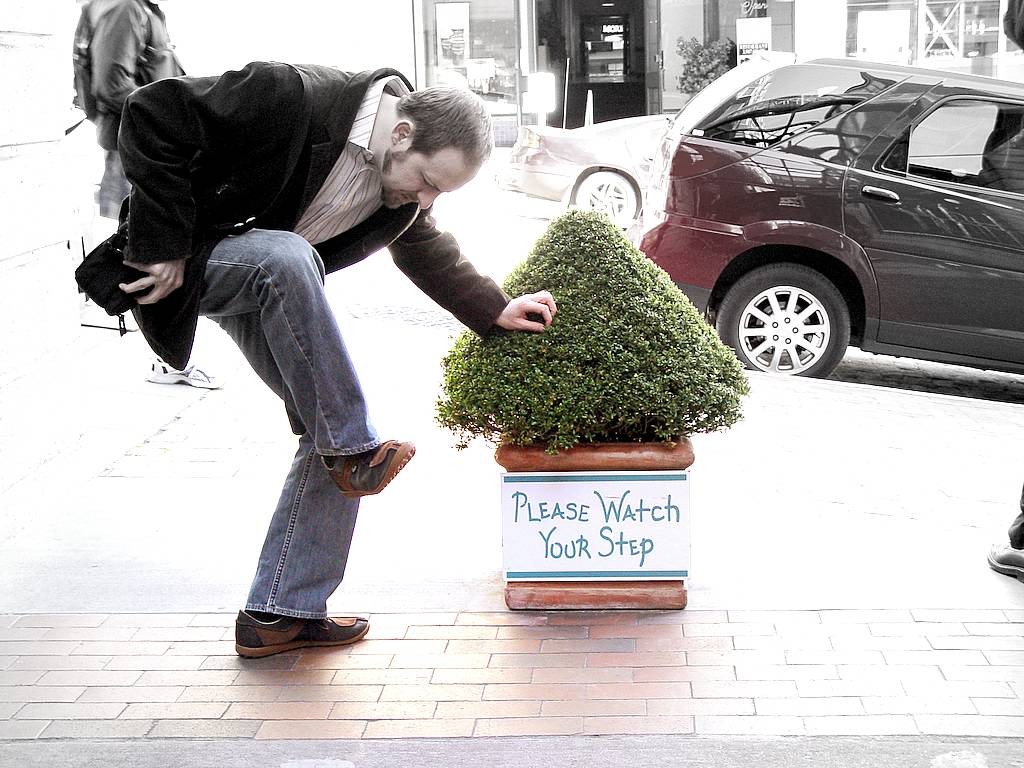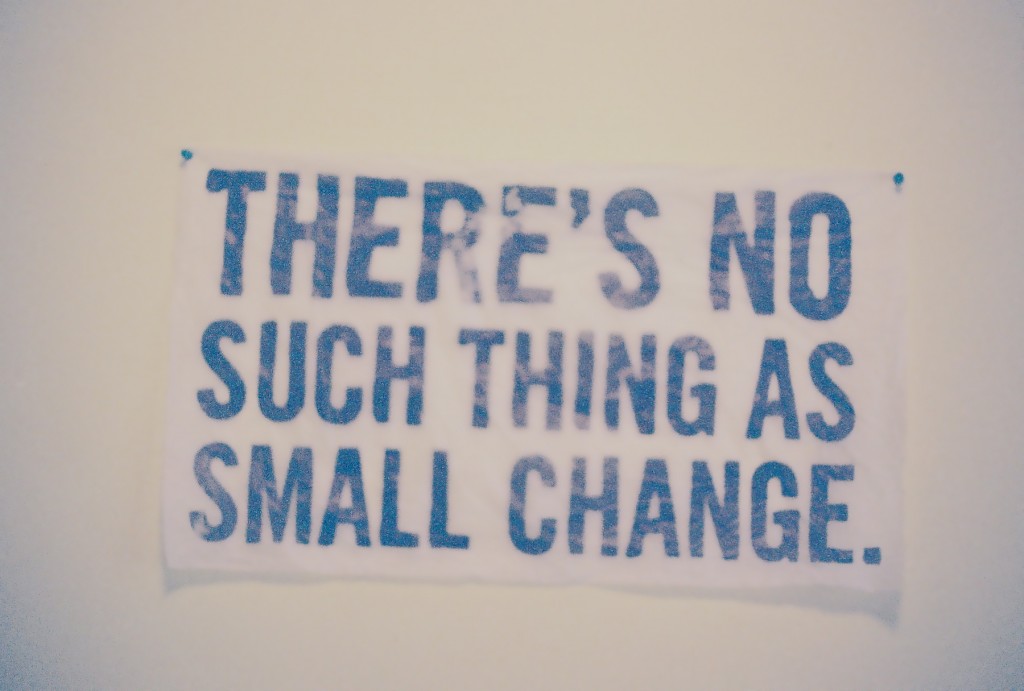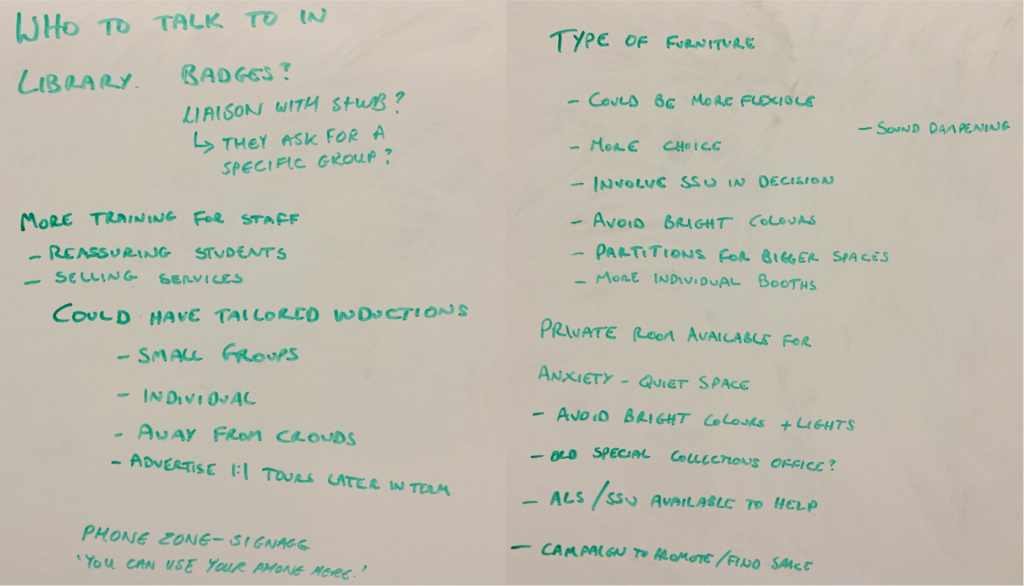Natalie Savage, a Disability Advisor for Student Support & Wellbeing here at Kent, led a thought provoking session about living with an Autistic Spectrum Condition, from the challenges of social communication, interaction and imagination, to the importance of routines, rules and rituals.
What is an Autism Spectrum Condition?
Autism is a developmental condition that affects a person throughout their whole life. It is part of the autism spectrum, and is sometimes called Autism Spectrum Disorder, Autism Spectrum Condition, ASD or ASC.
It is refereed to as a spectrum condition because the condition affects people in different ways, even though they share some of the same characteristics. The three main areas of difficulty which all people with autism share are sometimes known as the ‘triad of impairments,’ which are:
- difficulty with social communication
- difficulty with social interaction
- difficulty with social imagination
However, people who are on the autistic spectrum may also experience a need for routines, suffer with sensory sensitivity and anxiety, and may also have special interests.
Support available at the University of Kent
Here at the University of Kent, Student Support and Wellbeing are currently aware of 94 students who have either Asperger’s or Autism (both Autistic Spectrum Conditions), of which 21 are registered with “two or more impairments.” However, there are 16 students who have not applied for an inclusive learning plan, or do not wish to have one, who disclosed their condition to UCAS.
Social Communication
 Many people with an Autistic Spectrum Condition have a very literal understanding of language which can lead to them thinking that a person is saying exactly what they mean. Common phrases that we can use in everyday conversation are a good example of this. For instance, if it was raining heavily outside we might say that it is ‘raining cats and dogs.’ Most of us will not take this literally, but someone on the spectrum may not understand that this isn’t being used literally.
Many people with an Autistic Spectrum Condition have a very literal understanding of language which can lead to them thinking that a person is saying exactly what they mean. Common phrases that we can use in everyday conversation are a good example of this. For instance, if it was raining heavily outside we might say that it is ‘raining cats and dogs.’ Most of us will not take this literally, but someone on the spectrum may not understand that this isn’t being used literally.
Body language, facial expression and tone of voice can also be difficult for a person on the spectrum to interpret.
Social Interaction
There are many unwritten social rules that we don’t need to think about. However, someone with autism may not understand these rules. For example, they may stand too close to another person without realising their is personal space etiquette.
People with autism often have difficulty recognizing or understanding other people’s emotion or feelings. For instance, they may not be able to interpret that a person is crying because they are happy. Equally, they may not know that someone is crying because they are sad. This can mean that they may appear to be insensitive because they struggle to recognise how someone else is feeling.
They may also find it difficult to express their own feelings and emotions, which can sometimes lead to ‘strange’ behaviour, and they can often prefer to spend time alone rather than in the company of others.
Social Imagination
Social imagination allows us to understand and predict other people’s behaviour, to imagine situations outside or the immediate routine and make sense of abstract concepts. These can often be difficult for someone with autism to understand.
They may find it difficult to understand what is going to happen next, and may even have little or no concept of danger. They may also find it difficult to prepare for change and plan for the future, or cope in new or familiar situations.
Imagination
Imagination should not be confused with the challenges associated with social imagination. Many people with autism are very creative and may be accomplished in fields such as art, music, science, drama, etc. Some famous people throughout history who may have had autism can be found here, and include Albert Einstein, Amadeus Mozart, Charles Darwin, and many more.
A Love of Routines and Rules
For someone with autism the world can appear to be very unpredictable. However, a daily routine can alleviate the anxiety levels that some autistic people may experience by limiting the amount of exposure they have to unpredictable events. For instance, a student may work with Student Support and Wellbeing Services to develop a timetable to help them manage their routine. They may like their lunch at the same time everyday, they may need to factor personal study time around lectures, etc. However, they may find it difficult to cope with change, but it is often easier for them to cope if they are prepared in advance.
Once someone with autism has been instructed to do something in a particular way, they may find that very difficult to change. If certain rules accompany this they do not always react well to them being broken. For instance, a group of people talking in a silent study area may be upsetting. They may also not know know how to deal with this rule breaking.
Sensory Sensitivity
(Video from ‘Interacting with Autism;’ Animated by Miguel Jiron; Produced by Scott Mahoy; Written By Marsha Kinder)
People with autism can experience some form of sensory sensitivity to sight, sound, smell, touch, taste, balance and body awareness. Their senses will either be intensified (hypersensitive) or under sensitive (hypo-sensitive). For example, a student using the new library extension may be able to ignore the background noise, but to someone else it could be too loud and distracting. This can cause anxiety or even physical pain.
Those who are hypo-sensitive may not be able to feel pain. They may burn themselves if washing their hands under very hot water, some may rock, spin of flap their hands to stimulate sensation, deal with stress, or to help with balance.
One persons experience of sensory sensitivity will vary from another persons and can be affected by other factors such as mood and stress.
Anxiety
It is very common for people with an autistic spectrum condition to experience high levels of anxiety. As you would have seen from the video above, this can escalate into ‘meltdowns,’ trauma and result in complete withdrawal.
It is not uncommon for them to have an irrational belief that a situation is or is going to be far worse than it actually is. This is known as catastrophising. The Musings of an Aspie website gives a personal insight into how “Catastophizing sucks: one woman’s thoughts about life on the spectrum.”
Highly Focused Interests

Many people with autism have specific and focused interests, often from a very young age, which can change over time or be lifelong. The interest can be anything from types of transport, computers, cartoons, music and art to collecting certain items.
A student here at Kent who is on the autistic spectrum has a special interest in lifts. He has mapped all of the lifts on campus and created a “Random Lift Tour” video on YouTube. He has over 6,000 followers.
What our students say about their experience of using the library?
What our students like about the library:
- “Overall I am very happy with it. I can usually find a space.”
- “I love it! (The new part that is) The café is also lovely.”
- “It’s okay. There are still places where you can read.”
- “I quite like it, I like the social areas.”
- “It’s brilliant.”
What our students dislike about the library:
- “I haven’t used it.”
- “It’s too busy.”
- “When I need help, I don’t know who to ask.”
- “Because I’m a Third Year, I can’t ask for help ‘cos people will think I’m stupid … I’ve left it too late.”
- “I don’t work there, but I might do in the future.”
- “The light is too bright in the new part; I prefer the lower ceilings in the original building and the quiet corners.”
- “I don’t like the open plan. People’s noise is constantly disturbing. There are no private places to hold small group discussions. It is too crowded.”
- “I liked the old study sections where it was closed in and quiet. The new sections are too open and too noisy. The sound carries easily, even small sounds carry and echo. There are no small silent/quiet areas to study. I don’t study in the new part at all.”
- “The water is too hot in the toilets.”
- “I hate it when people use the library to make phone calls ‘cos it’s quiet.”
- “Never go in there. I use the online resources though.”
- “Stuffy – not enough oxygen. Not enough computers.”
- “Stressful. Too exposed. Too much activity.”
- “Difficult to navigate – especially when you have to go around the building.”
How our students think we can make improvements to the library:
- “More signage – I’m really afraid that I’ll go down to a dead end and then have to retrace my steps and look like an idiot.”
- “Separate 1:1 library tours that relate to my course only would be brilliant.”
- “Sometimes I’m told to speak to my Subject Librarian, but in my eyes, they’re too important to address because they might think my question is stupid.”
- “I’d really value practice sessions (task based) on how to navigate library facilities.
- “Don’t make assumptions; either that I must know something or that I don’t.”
- “Do check understanding; if possible show me, not tell me.”
- “I’d like a video of library staff introducing themselves and saying what they do. This would take away a lot of the unknowns and make me less anxious.”
- “Is there a way of letting students know the busiest/quietest times of day/term? They must have some clue about volume of students in there at various times so perhaps they could advise good times to visit and not have others waiting for staff and lots of people to contend with?”
- “Demonstrating empathy and patience would be great.”
How can we improve the library experience for those with autism?
“Professor Tony Attwood in conversation with Autism Care UK.” Here Tony discusses autism friendly environments, transitions and autism awareness. (From a conference supported by Autism Care UK).
Natalie has provided some tips for dealing with students who visit the library:
- “Some students do not like asking for help if they are surrounded by people. Maybe take them aside to a quieter space?”
- “Many are very anxious and would have tried to resolve their problem before asking for help. Listen to their needs and try to resolve their query in a direct way (perhaps write down information/directions).”
- Some students may not be sure of what or how to ask for something. Do not bombard them with questions/answers in an attempt to be helpful. Give them time.
- Most importantly – mean what you say and say what you mean. Do not promise something that cannot be delivered.
- Don’t make assumptions or judgements. If you pathologise someone, this is going to be a barrier to genuine connection and authenticity.
- Positive experiences will help the student to gain confidence and improve access.
- Negative experiences may mean that the student never returns.
Your feedback will be used to make positive change happen
The event slides are available here:
LibChat – Autism ; Slides – Natalie Savage, Student Support & Wellbeing
Comments and suggestions raised during this LibChats will become part of ongoing work to make improvements to the library and university wide experience for those with hidden disabilities. If you have any other comments regarding the student experience for those with hidden disabilities please contact us at libchats@kent.ac.uk
Where to find out more
http://www.interactingwithautism.com/
http://www.nhs.uk/conditions/autistic-spectrum-disorder/Pages/Introduction.aspx
http://musingsofanaspie.com/2013/08/16/catastrophizing-sucks/
References
By Josie Caplehorne




